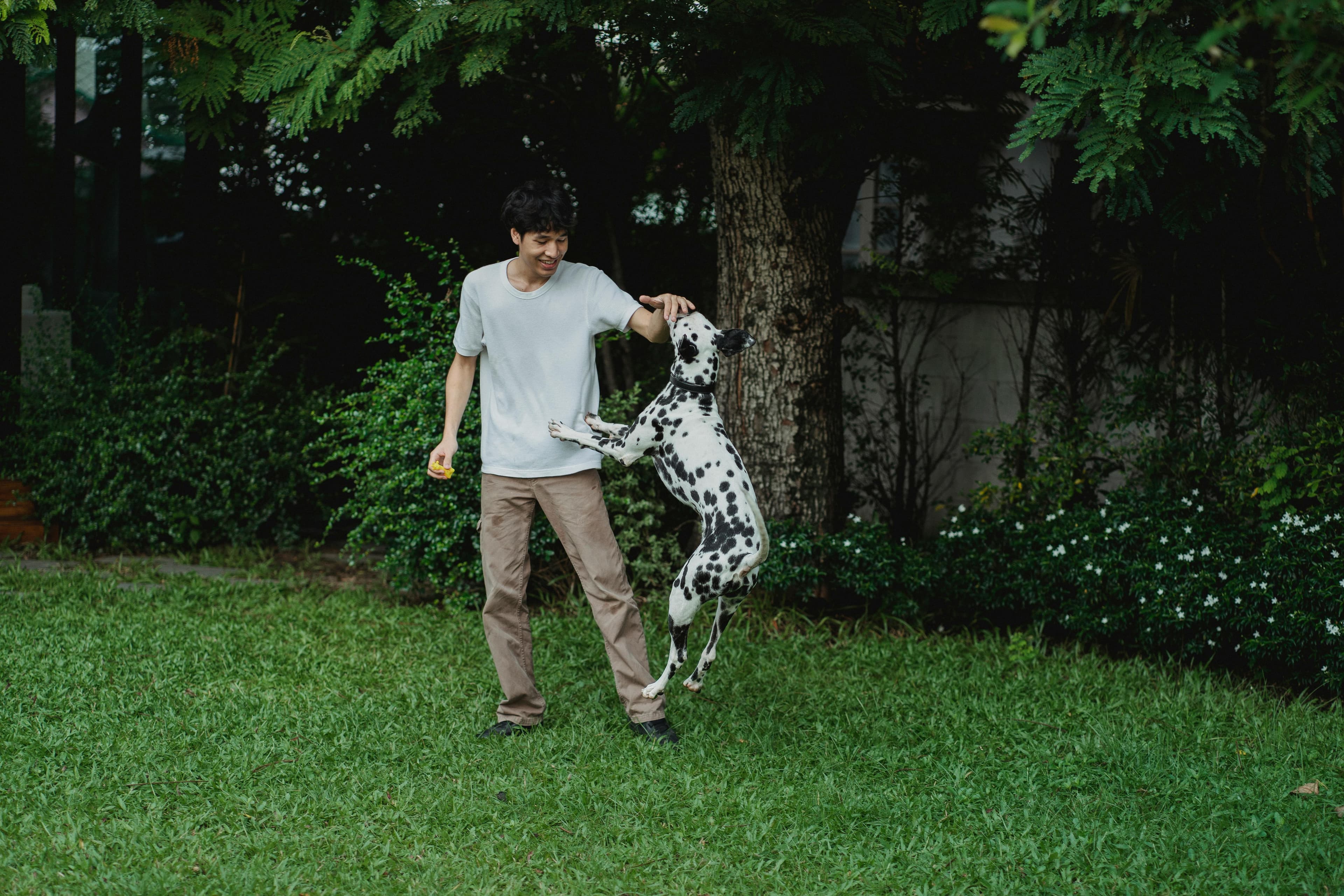It is a basic instinct for every dog to jump and get excited when they see their parent or even if someone else is visiting them. Jumping is a common behavior in dogs, however, jumping at visitors or any new person they see can be troubling for any pet owner. This becomes a problem particularly when the dog grows up and continues to greet everyone by jumping on them. Teaching your dog not to jump is essential for their safety and the comfort of everyone they interact with. Let’s dive into some effective management and training strategies that curb dog jumping behavior.
Management
Managing your dog's environment can help prevent jumping before it starts. One simple method is to keep your dog on a leash when guests arrive. This gives you control and helps prevent your dog from getting too excited. One more idea is to offer a chosen spot like a mat or a bed where your dog should stay when people come in. If they are really good and do not move from their spot, be sure to give them treats or praise for this positive behavior.
Putting up obstacles like baby gates can also work well. By limiting your dog's access to specific locations, these devices let you better control their behavior. Recall that the objective is to provide a serene and regulated setting that reduces the likelihood of leaping.
Training
How to stop a dog from jumping? The key lies in training. Consistent and positive reinforcement methods work best. Here are some specific scenarios and how to handle them.
When Your Dog:
Jumps on other people
If your dog jumps on guests then you have to tell your friends and family on how to respond. Instruct them to turn away and ignore your dog when they jump. No eye contact, no talking, and no touching. Once your dog puts their four paws on the ground, they can get the coveted attention and treats. This teaches your dog that jumping doesn’t get them the attention they crave, but staying down does.
Jumps on you when you come in the door
Puppies and dogs race to meet you as you return home because they are delighted to see you. If you want to stop dog from jumping, ignore them when you initially get home. Turn your back and wait until they calm down before giving any attention. Pushing your dog off when they jump can be seen as a form of attention. It might encourage more jumping. Better to turn away and ignore them until they stop. You can also teach your dog to sit when you enter the door. Reward them with treats and affection once they sit calmly. Consistency is crucial — make sure to repeat this routine every time you come home.
Jumps on you when you’re sitting
Dogs may jump on you when you’re sitting to seek attention or get closer to your face. If this happens, stand up and turn away. Only interact with your dog when they have all four paws on the ground. Teaching an alternative behavior, like sitting or lying down, can also be effective. According to an article by PetMD, when you teach a dog to sit and keep repeating this behavior over time, the next step is to repeat this action but this time invite a stranger to the house. You have to give your pooch a reward for sitting calmly next to you rather than jumping up and down.
Conclusion
If you wish to train dog not to jump, it cannot be attained without a lot of patience and constancy. When it comes to instructing your dog to properly greet visitors, environmental control and positive reinforcement will definitely come in handy. Always promote desired behaviors and disregard undesirable ones. With these tricks, you'll be able to enjoy an easygoing and well-behaved dog. Remaining persistent, you will be able to teach your dog not to jump. You will be surprised at the wonders this does for your relationship with your pup.
Frequently Asked Questions
How to train a dog to stay?
Training a dog to stay means teaching them to understand the command and rewarding them for holding the position when they do it. You can always start with short periods and increase the time as your dog gets better at it.
How to stop a dog from jumping if they are already grown up?
Yes, older dogs can learn not to jump. It may take a bit more time and patience, but with consistent training, they can adopt new behaviors.



